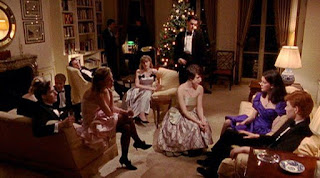Year of Release: 1997
Director: Mel Smith
Screenplay: Richard Curtis and Robin Driscoll, based on the television series Mr. Bean created by Richard Curtis and Rowan Atkinson
Starring: Rowan Atkinson, Peter MacNicol, Pamela Reed, Harris Yulin, Sandra Oh, Burt Reynolds
Running Time: 90 minutes
Genre: Comedy
Mr. Bean (Atkinson) is a well-meaning but clumsy and accident prone security guard at the National Gallery in London. Unable to fire him, the gallery's board of directors select Bean as their representative to oversee the transfer and unveiling of the painting of Whistler's Mother by James McNeill Whistler to the Grierson Gallery in Los Angeles. The Grierson's curator, David Langley (MacNicol) his impressed by Bean's false profile and offers to accommodate him at his family home, much to the displeasure of his wife, Alison (Reed), and his two children. However, Bean's inadvertent ability to create absolute chaos threatens to ruin everything for David.
Mr. Bean started out as a British television sitcom which ran for 15 episodes between 1990 and 1995. The series was hugely popular bit in Britain and around the world, due in no small part to the fact that the series was almost entirely free of dialogue. The comedy was entirely physical, and the almost non-existent dialogue really had nothing to do with the episode's plot. In the film there is dialogue and also a plot. Mr. Bean would speak in strange, strangulated voice and, true to the series, he does have very little dialogue, and the humour is also mostly slapstick, physical comedy. It's not a bad film, but it's not a good one either. It's a fine enough film to pass the time, and it is funny, but it's not really something that will stick in the memory. Rowan Atkinson is a very talented physical comedian, the problem is that the character of Mr. Bean is great for a half hour TV show, but spread out over an hour and a half it's just too much. Peter MacNicol provides a good counterpoint to Mr. Bean's clowning as the harried, put upon curator.
Rowan Atkinson in Bean








